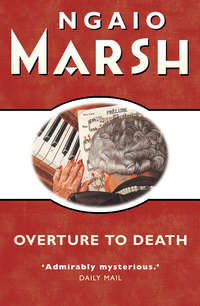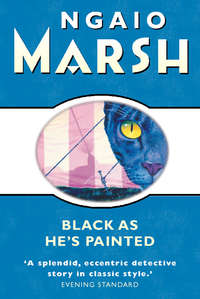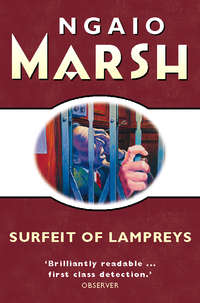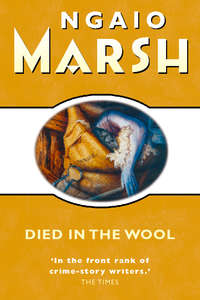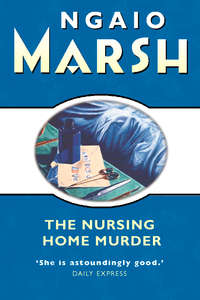
Полная версия
Black Beech and Honeydew
‘Mummy’s cross of me!’ I bawled. ‘But I don’t care, Mivvy, do I?’
Mivvy was the kind of friend whose visits can never be long enough and to whom everyone turns at moments of distress without feeling that they ask too much of her. I hope we didn’t ask too much: I don’t think we did. She was very easy to tease and she was also extremely and comically obstinate. During one of her visits, which we all so much liked, my mother sprained her ankle. Mivvy was determined to administer fomentations, my mother, equally formidable on such issues, was adamant that she should do no such thing. Mivvy set her jaw. The siege of the fat ankle, to my infinite enjoyment, lasted all through one day. Suddenly, at nightfall, my mother yielded. Mivvy, triumphant, became businesslike. Saucepans were set to boil. Linen was torn into strips. Lint and aromatic unguents were displayed. A footbath was prepared. For about an hour my mother suffered her extremity to be alternately seethed and chilled while Mivvy, neatly aproned, bustled vaingloriously. Finally, the ankle was anointed and elaborately bound.
‘There!’ she cried. ‘Now! Doesn’t it feel better?’
‘It feels perfectly all right, thank you, Mivvy dear,’ said my mother and from beneath the hem of her Edwardian skirt displayed the other ankle: still swollen.
‘If there had been any scalding water left,’ Mivvy said, ‘I would have hurled it at you.’
Of all the other grown-up friends and relations who came and went during my earliest childhood the outlines are blurred. There were facetious gentlemen who pretended to be staggered by my voice which was rather deep, and an offensive musical gentleman who insisted, like Svengali, on looking at my vocal cords. Luckily he was not possessed of Svengali’s expertise. Nothing short of deep and remorseless hypnosis would ever have induced me to sing in tune. There was Captain Sykes who became famous, and Mr Parkinson who collected china and committed suicide, there were numbers of ladies who came to my mother’s ‘day’ and to whose ‘days’ I was boringly taken, since I could not be left at home. One of them kept swans on an ornamental pond and these arrogant birds rushed, hissing, at me, when I was sent to play in the garden.
Across the lane in a very big house with a long drive, a lodge at the gates, a horse-paddock, carriages and gigs, a motor, grooms, servants and a nanny, lived a boy and girl with whom I loved to play when my mother visited there. It seemed to me to be a magical place filled with the scent of flowers. The boy, who was asthmatic and often confined to a wheeled chair, was some three or four years my senior: his sister about my own age. This was the beginning of an established friendship. Into the dawn of it, floatingly recollected, come the Duke and Duchess of York (afterwards King George V and Queen Mary) to stay at this house. I remember being lifted on a high evergreen fence to watch my friend’s uncle wire-jumping his horse for the Duke’s entertainment and I remember my parents making ready for a royal reception. Was it on that occasion or a later one that I so laboriously picked violets, bound them, limp and intractable, with a piece of fencing wire out of the gardening shed and presented them to my mother? I see them, wilted, slithering from their confine and weighty to a degree and I see my mother anchoring them in the black lace of her corsage. They must have all disappeared, this way and that, long before the ducal assemblage and I suppose that by some means or other, she rid herself of an embarrassment of stout wire.
I am convinced that recollections of childhood go much further back than we are accustomed to suppose. I realise that mine are based in some measure upon what my parents and friends afterwards told me but for all this I know that many of them have stayed in my conscious memory and that these are the most vivid. The smell, for instance, of newly shot game birds and the glossy slide of their feathers: with this, a shooting hut near the shores of a lake, the song of larks, dry cowpats that were burned in the open fire and, especially, some domestic pigs whose personal hygiene, for some reason, I determined to improve. I remember perfectly well the indignant screams of one of these creatures and the difficulty of retaining my hold on its ear, the depths of which I explored with my own soapy bath-flannel. I have a snapshot taken at the time: it displays my mother graceful and long-skirted, Mivvy and my father in oilskins and sou’westers with shotguns under their arms, the spaniel, Tip, and a stout truculent child of four who is myself.
I have grown, in theory at least, to dislike blood sports but how superb were those sunny mornings when I was allowed to walk behind my father and Tip through the plantation where he and his friends went quail-shooting. On these occasions he was completely and explicitly himself. He would imitate the cry of a Californian cock-quail, make little clucking noises to Tip and even quiver very slightly as Tip did. One had to keep perfectly silent and walk lightly behind the guns. The click of the hammer when he cocked his gun, the sudden whirr of wings, the deafening report and the heady cordite reek of the ejected cartridge-case: these were the ingredients of pure happiness.
When we had followed the guns as far as our picnic place my mother and I would stay there, make a fire of heaven-smelling dry bluegum, and await their return for luncheon. Every now and then we would hear the guns. Shockingly, as one may now feel, my father loved the creatures he shot. Once he described to me very vividly the flight of an English pheasant and the heavy, dark abruptness of its fall. He thought for a moment. ‘Awful, really,’ he said in a surprised voice, ‘isn’t it? Awful, I suppose.’ As a boy, he saw Ellen Terry play Beatrice and of course fell in love with her. ‘When she had to run “like a lapwing, close to the ground” she did it like a henpartridge, trailing her wing to draw attention away from her nest. Beautiful!’ It was the highest praise he could have given Miss Terry.
He was a purist in the management of field sports. When I stumped behind him with a heeled stock in the crook of my arm I had to behave exactly as if it was a real gun: ‘uncocking’ it at fences or gates, ‘unloading’ it before I put it down and never pointing it at anybody. To do otherwise was ‘loutish’. He was dealt one of those strokes of malevolent ill-fortune that so punctually overtook him when he loaded his walking-stick air gun to shoot a fruit-robbing blackbird, was called away and put it in a corner unfired and, for once, forgotten. Weeks later, my mother, who was alone in the house, knocked the gun sideways and it discharged into her middle finger. We had no telephone then and no near neighbours. She bound it up as best she could and waited all day for us to come home. A dreadful episode.
When I was still a small girl I was given a Frankfurt single-bore rifle. I practised, under stern supervision, on suspended tins and cardboard targets until I was a good shot and allowed to go out with the guns. This was wonderful. To kill rabbits was an honourable procedure. And then, on an autumn morning, I wounded a hare. The landscape blackened and cried out against me and that was the end of my active part in field sports.
These expeditions alternated with boating on the quiet river where one glided through unknown people’s gardens, under willows and between the spring-flowering banks of our curiously English antipodean suburbs. The oars clunked rhythmically in their rowlocks, weeping willows dipped and brushed across our faces. If you nibbled the pale young leaves they were surprisingly bitter. Sometimes our keel grated on shingle or sent up a drift of cloudy mud. One trailed one’s fingers and felt grand and opulent. It seems to me that it was always late afternoon on the river.
Until my schooldays came and, with them, camping holidays in the mountains, the great adventure, undertaken on several occasions by my mother and me, was a journey to Dunedin. It lasted all day. Up before dawn, we dressed by lamplight while cocks crew in the darkness beyond the window-pane. We seemed to have taken our house by surprise while it was still leading a night life of its own. In the hall stood our corded boxes and the coats we would wear. Breakfast was a strange hurried business eaten by the light of an oil lamp with a clock on the table. Presently the front door had banged behind us.
My father took us to the station and put us into our carriage (second-class after the financial setbacks). It had wooden benches running lengthways and spittoons along the floor. Now began a period of frightful anxieties. Suppose we stayed too long on the platform and the train suddenly went away without us? Suppose, as I was getting in, my mother should be left behind, mouthing after me on the platform while I was carried rapidly south? Suppose we were in the wrong train and would be swept up through the mountains to Westland or that my father, having established us in our seats, foolishly dallied and was borne away in the train with us and financially ruined.
When we were on our way these apprehensions faded, most of them recurring when my mother decided that we should stretch our legs at the longer stops. The journey became fascinating. We racketed across the Canterbury Plains while in the world outside the Southern Alps advanced, retired and slowly looked over each other’s snowy shoulders, and mad loops of telephone wires dipped and leapt in front of them. ‘Dun-e-DIN. Dun-e-DIN’ said the hurrying train and ‘No-you-DON’T. No-you-DON’T,’ sometimes breaking out into a violent excitable clatter as we roared through a cutting: ‘Rackety-plan. Rackety-plan.’ We crossed great rivers and saw men and vast mobs of sheep on lonely roads. A long day.
There were three little parcels to be opened at appropriately spaced stations. They were always books. There were the lurching hazards of an endless stagger through other carriages and over-shifting footplates in a roaring wind, to the dining car. There were Other People to speculate upon and at evening when one was very tired indeed there was a final treat: my mother’s dressing case to be explored. It was lined with deliciously-smelling leather and fitted with crystal, silver-topped bottles. Soap, eau-de-Cologne with which one’s face was cleaned and freshened. A tiny phial of real attar-of-roses sent out by my grandmother from England. Papier-poudré, which was a little book of leaflets that my mother rubbed over her eau-de-Cologned nose and chin. An ivory-backed brush and comb. A looking glass from which one’s face stared back like a ghost in the murky lamplight. Now we were hurtling round the high cliffs of the Otago coast. If there was a moon outside it shone on the Pacific, far below. Lonely patches of bushland and ranges of hills moved against the sky behind cadaverous nodding reflections of Other People’s faces.
At last, at the end of a lifetime and late at night: Dunedin, the smell of Mivvy’s fur coat and the familiar sound of her voice. The platform heaved under one’s legs. I cannot remember, on any occasion, the drive out to St Clair and suppose I must always have fallen asleep. One entered the house through a conservatory smelling of wet fern. We were near the sea and the last thing one heard was the roar of surf on a lonely coast.
One day, at St Clair, it rained so heavily that I was not allowed to put my nose out-of-doors. Under the dining-room bay-window seat was a system of lockers. Mivvy said they were full of old magazines and suggested that I might like to explore them. They were of two kinds. The Windsor, which was lettuce green with the Castle, I think, in brown, and The Strand with a picture of that thoroughfare on the cover. All day I hunted and devoured, tracing the enchanting series from one edition to the next. The rain beat down, not on the windows of a New Zealand house but across those of a gas-lit upstairs room in a London street. It glistened on the roofs of hansom-cabs and bounced off cobblestones. It mingled with the cries of newsboys and eccentric improvisations upon the fiddle. A solitary visitor was approaching: there was a peremptory double-knock at the street door. Someone came up the stairs and entered.
‘Hullo,’ said Mivvy, looking over my shoulder, ‘you’ve discovered Sherlock Holmes.’
CHAPTER 2 The Hills
Miss Sibella E. Ross was a gentlewoman of Highland descent. She was also a cousin of my adored Dundas. Her shape was firm, her bust formidable, her eyes blue and, like her face, surprisingly round. Her teeth were slightly prominent. She lived with her highly respected family in a large house generally known, though not I think to the Rosses, as ‘The Tin Palace’, since it had been constructed in pioneering days from galvanized iron and had a tower. In premises conveniently adjacent, Miss Ross kept school: a select dame school for about twenty children between the ages of six and ten years. Miss Ross’s family and immediate friends called her Tibby and her ex-pupils referred to her school as Tib’s.
To this establishment I was sent when I was, I suppose, six years old. I have no doubt whatever that it was a wise decision but the experience in its initial stages was hellish.
In the morning I was put into a horse-drawn bus where there were already three fellow pupils. We were met at the other end by Miss Irving, the governess at Miss Ross’s, and escorted to school.
‘Good morning, children.’
‘Good morning, Miss Ross. Good morning, Miss Irving.’
For the first time I found myself one of a group of children and, for the first time, I was conscious of being tall for my age. This made the simple business of standing up to answer questions an embarrassing ordeal. Miss Ross had invented an ‘honour’ system which decreed that at the end of the morning each child must stand up and proclaim how many times he or she had spoken unlawfully in class. When my immediate neighbours discovered, with the terrible prescience of children, that this observance frightened me, they determined, gleefully, to enhance its terrors by forcing me to talk. They would hiss questions. If I didn’t answer, they would make jabs at me, for all the world as hens peck at a sick bird. They would peck and jab until I made some kind of response and then stare accusingly at me when the moment for public confession arrived. One could not always ask to ‘leave the room’ at the crucial moment. I cannot think that this was a good practice: it engendered, in a single operation, elements of guilt, fear, loneliness and inferiority, and, indeed, provoked a sort of Freudian extravaganza in the reactions of a little girl who was unprepared for it. The follow-up treatment took place in playtime and was set in hand by the nine-year-olds. They organized themselves and their juniors into something that was called a ‘secret army’ and from it excluded two stalwart little boys and myself. The boys were called Charles and Roderick and were kind. Roderick became a soldier and Charles a man of letters. Both of them left New Zealand. When, on separate occasions and about thirty years afterwards, I met them again, something of the intense gratitude I had felt for them returned. We talked about our first term at Tib’s.
I did not say anything at all about these miseries to my parents but I think my mother must have known that all was not well and decided that I should stick it out. Very properly so, I expect. After all, she was up against the problem of the only child. It is true that by some process of adaptation the picture gradually changed. I was no longer bullied. I formed heartening friendships with other small girls. I toughened.
As time went on I was even given certain responsibilities at Tib’s. When Ian, a fighting boy in a kilt, was brought at eleven o’clock every morning by his nanny, I was one of two sent to take delivery of him in the porch. He yelled, bit and kicked, while his nurse recommended that he should go with the nice young ladies to his lesson. We led him, roaring, to his desk, rather impressed than otherwise by the extremity of his passion. Dick, a fat boy, was more vulnerable and wept sometimes. He was jeered at by my former tormentors and I’m glad to remember that I was sorry for him and didn’t join in. I was out of the wood by that time. Rightly or wrongly, however, I still think that my first term at Tib’s was far from being all to the good. It does not improve the character to be bullied. Children are microcosms of people. Treat them badly for long enough and then give them a little power and they will punctually repeat with greater emphasis the behaviour to which they have been subjected. Fear is the most damaging emotion that can be inflicted on the character of any child and on one already as morbidly prone to inexplicable terrors as I was, the early torments I underwent at Tib’s were pretty deadly. When they moderated and I was no longer in thrall, I reacted predictably. I don’t think that on the whole I was all that much more obnoxious than any other little girl of my age but for a time I became so: bossy, bullying, and secretive, paying back however unconsciously, I am sure, for what had been dealt out to me. I don’t think it lasted very long but it happened and in my old age I still remember and am sorry about it.
Fear can be perhaps the most corrupting of our basic emotions and fear without the possibility of release, the worst of all. The child who has been overtaken by it is a microcosm of the mob. If you rule a people by fear and treat them as an inferior race and then give them power, don’t expect them to use it like angels. You have corrupted them and many of them will abuse it.
One day, while I and other Fendaltonians waited for Miss Irving to put us on the bus, we heard a clatter of hooves in the quiet street and mounted policemen rode splendidly by, followed by a carriage with a crown on the door.
‘The Governor,’ gabbled Miss Irving in a fluster. ‘Girls curtsey and boys bow. Off with your caps. Quick.’
We bobbed and nodded, eyeing each other sideways and then looked up to see the Governor smiling and bowing very pointedly to us. With him was his wife and unless I am at fault, a little girl of about my own age of whom there will be much more to say.
Away rolled the carriage and up came the bus.
One other incident sticks in my memory. Miss Ross, rather ominously smiling, asks her pupils what they wish to be when they grow up. She concentrates upon the boys since the girls are destined for matrimony: an employment not to be examined in detail with propriety. I, however, hold up my hand. ‘I want,’ I venture, ‘to be an artist.’ ‘Ho!’ Miss Ross atrociously says, ‘you’ll never do that, my dear. Your hand shakes.’
I suppose I had attended Miss Ross’s school for about a year when the great change came. We went to live on the hills.
II
When I looked south from the higher branches of my wellingtonia tree in suburbia, I saw, above park, roofs and Cathedral spire, the Port Hills. They were only four miles away but to me they seemed as romantically distant as those snowy Alps that stood to the north beyond the Canterbury Plains. The hills were rounded and suave in outline with occasional craggy accidents. They would be called mountains in England. The tussock that covered them gave them a bloomy appearance as blonde hair does to a living body. I was told that a long time ago they had moved gigantically and heaved themselves into their present form and then grown hard, being the overflow of a volcano.
The crater of this volcano is now a deep harbour into which a hundred and fifteen years ago, sailed the First Four Ships: Sir George Seymour, Randolph, Cressy and Charlotte Jane, bringing the founders of the Canterbury Settlement. These intrepid emigrants landed at the port of Lyttelton, wearing stovepipe hats, heavy suits, crinolines and bonnets. They climbed the Port Hills and reached the summit where, with a munificent gesture, their inheritance was suddenly laid out before them. Whenever I return to New Zealand I like to come home by the hills and still think that an arrival at the pass on a clear dawn is the most astonishing entry one could make into any country. There, as abruptly as if one had looked over a wall, are the Plains, spread out beyond the limit of vision, laced with early mist, and a great river, bounded on the east by the Pacific, on the west by mere distance, and from east to west by a lordly sequence of mountains, rose-coloured where they receive the rising sun.
Gramp came this way in, I think, 1853 and looked down at swamps and a little group of huts and wooden buildings. When he was eighty he still used to go for a Sunday walk on the Port Hills and glare sardonically at the city of Christchurch.
In our Fendalton days there was only a scatter of about twenty houses on the hills. We were lent one of these for a summer holiday – a house amidst tussock with nothing but clear air between it and the foothills of the Alps, forty miles away on the other side of the Plains. It was this visit, I think, that decided our move. My father bought the nose of the same hill; some three-quarters of an acre of ground, already fenced, partly cultivated and set about with baby trees – pinus radiata and limes, not much higher than the surrounding tussock. A sou’-wester is blowing this morning and I look anxiously at the tops of my pines, a hundred feet tall, and hope they have enough sap in their old bodies to withstand the gale.
As soon as the momentous decision was taken, it was communicated to an architect cousin of my mother’s. He at once caused to be set aside a stack of seasoned timber and exposed it to further weathering. It had come out of the mountains, horse-drawn through virgin forest to a bush tramway, or had been floated across a lake and broken down in Westland timber mills. When I made some alterations in this house, the carpenters were unable to drive a nail into the old joists; the wood, they said, was like iron rather than timber.
Perhaps the lease of our house in Fendalton expired before the new one could be built or perhaps there was a delay in the building. For whatever the reason, it was decided that we should camp in tents near the site of our future home and stay there until it was completed. I fancy that we adopted this hardy adventuresome procedure partly because my father considered it would be an advantage if he were at hand to keep an eye on the workmen.
‘You never know,’ he said darkly, ‘with those chaps.’
It was on an early summer’s day that we left Fendalton, seated on top of our tents and boxes in a spring-wagon. My father’s closest friend of those times had a motor-car, one of the first in Christchurch, and had offered to drive us to the hills, but I think the recollection of innumerable breakdowns and hour-long unproductive explorations of its less accessible mysteries decided my mother against this vehicle. She felt that the important thing was to arrive.
So, on what seems to me to have been an interminable journey, we plodded through the borders of Fendalton, round the parks, past a region of drafting-yards and sheep pens where, once a week, livestock was sold, down a long highway and into Wilderness Road, an endless stretch between gorse hedges. It is now a main suburban street. This brought us at last to the hills; to a winding lane, a rough track and our destination. I remember that a hot nor’ wester raged across the plains and when we tried to pitch our bell tents, got inside them and threatened to blow them away like umbrellas. We settled at last upon the sheltered end of a valley, below our section and within sight of the scaffolding that had already been set up.
There we lived throughout the summer. It was the beginning of a new life for all of us.
I continued at Tib’s. Every morning, with my father, I left our tents, climbed up and over a steep hill, or as an alternative, walked a mile round the foot of it to the terminus of a steam-tramway and was carried into Christchurch. In winter I was dressed in a blue serge sailor suit with braid on the collar and skirt and an anchor on the dicky. I also wore a sailor’s cap with HMS Something on it. In summer this nautical motif was carried out in cotton or piqué and the hat was of straw. We had friends living near us in a large house with plantations and a rambling garden – the Walkers: mother, sister and four enormously tall brothers of Dundas, who was now on the stage in Australia. Three of the brothers were bearded, which in those days was unusual, and they were all extremely handsome: Graham, Colin, Alexander, Cecil. I transferred much of my devotion to them, particularly to Colin. Although they were cousins of Miss Ross, they held her so little in awe that on one occasion, finding me alone on the top of the double-decker steam-tram, they rifled my satchel and extracted an exercise book. Alexander gripped my arms while Colin wrote on a virgin page:


